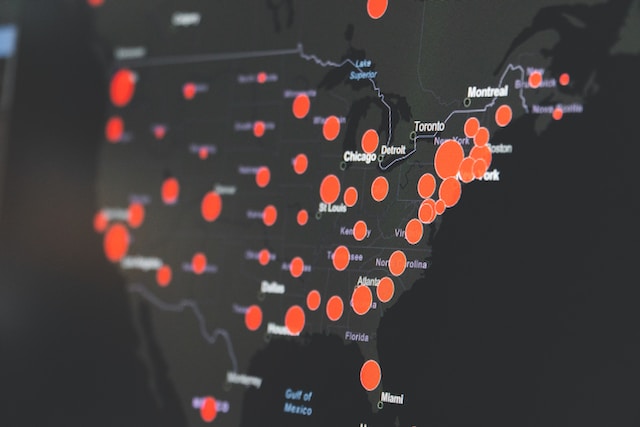Diplomats from the European Union and the Gulf Cooperation Council (GCC) countries have voiced keen interest and determination to strengthen cooperation and relations between the two regional blocs.
These views were expressed at a meeting of the European Parliament’s Delegation for Relations with the Arab Peninsula (DARP) in Brussels Thursday evening.
Hannah Neumann, chair of DARP announced that the two topics on the agenda were the election of a vice-chair, and DARP’s upcoming mission to Oman.
She noted that after the resignation of Belgian MEP Marc Tarabella in January the seat of the second vice chair of DARP has been empty.
DARP MEPs present at the meeting elected by acclamation 38-year old MEP from Denmark Niels Fuglsang as vice chair.
“We have a lot of work ahead of us in the EU and the DARP delegation on various issues,” said the new vice chair in his short acceptance speech.
Fugslang who comes from an energy background, said energy cooperation between the two sides is “very important for both sides.” “My focus will be on both critical dialogue about human rights, democracy and also energy cooperation, which must be made green. Looking forward to work,” he stressed.
Neumann announced that on 18 June DARP will hold a meeting on women empowerment in the Gulf, and is also planning a visit to Yemen in July.
In mid-May DARP will pay a visit to Oman to hold the interparliamentary meeting aimed at boosting relations between the two sides, she said.
Anna-maria Panagiotakopolou, head of division for Arabian Peninsula and Iraq in the EU?’s diplomatic service called the EU External Action Service (EEAS) said “the EEAS values very much the cooperation with the European Parliament and we deem it necessary to plan a common policy for the region together.” She said that the adoption of the Joint EU Communication on a Strategic Partnership with the Gulf in May 2022 “provides a solid base for a more comprehensive partnership.” Further, she said the five-year joint EU-GCC Cooperation plan adopted in February 2022 is progressing “despite some setbacks and difficulties and stressed that it is important to continue engaging GCC partners to enhance relations in a wide range of areas.” The region is gaining importance and the EEAS plans to open a new Delegation in Oman in 2024, the fifth in the Gulf region after Saudi Arabia, UAE, Kuwait and Qatar, said the EU diplomat.
The six-member GCC includes Kuwait, Saudi Arabia, UAE, Qatar, Bahrain and Oman.
She announced that the next EU – GCC ministerial meeting is scheduled to be held in Muscat probably next October during the Omani chairmanship of the GCC.
“Oman plays a key role to maritime security and also in mediation efforts,” as in Iran and Yemen, she said, adding that cooperation is also expanding in key areas such as clean energy.
The 12th EU inter-parliamentary meeting with Oman on 13 to 17 May in Muscat will be an important event to explore a stronger EU-GCC engagement as Oman holds the current GCC Presidency, she said.
The visit of the DARP mission to Oman will be a good opportunity to bring the two regions closer, highlighted Panagiotakopolou, who is from Greece.
Commenting on the visa-free travel for GCC citizens to the EU, she said “it is an important issue in our bilateral agenda”, adding that “we strongly believe that we should have a visa-free strategy for all GCC countries.” On her part, Oman?’s ambassador in Brussels, Rua Al Zadjali, presented a roundup of Omani-EU relations in the political, parliamentarian, economic and cultural areas and highlighted the extensive opportunities to enhance bilateral cooperation.
“The Sultanate of Oman and EU share many common interests including regional security, economic cooperation and cultural exchanges,” she said.
On his part, Abdulwahab Besharah, counselor at the GCC mission in Brussels, in his intervention said the GCC acknowledges the important role of the European Parliament in enhancing relations between the GCC and the EU, and in this context, the GCC warmly welcomed the adoption of the Joint Communication on a Strategic Partnership with the Gulf.
“The GCC values in this regard enhancing parliamentary dialogues between the GCC countries and the European Union, and calls for maintaining regular meetings between the Shura Councils, Houses of Representatives, Parliaments, the National Assembly of the GCC countries, and the European parliament, as these meetings and dialogues contribute to strengthening the relations between the GCC countries and the EU, enhancing our cooperation in several policy fields and improving our mutual understanding,” he stressed.
On her part, Neumann remarked that “I am glad to see that GCC now takes a more pro-active role. This maybe due to your new boss (Jasem Al-Budaiwi) a friend of ours who I think knows very well how to maneuver the EU.” Al-Budaiwi served as Kuwait?’s ambassador in Brussels for six years before taking up his new post as the Secretary General of GCC in Riyadh last February.
Source: Kuwait News Agency

